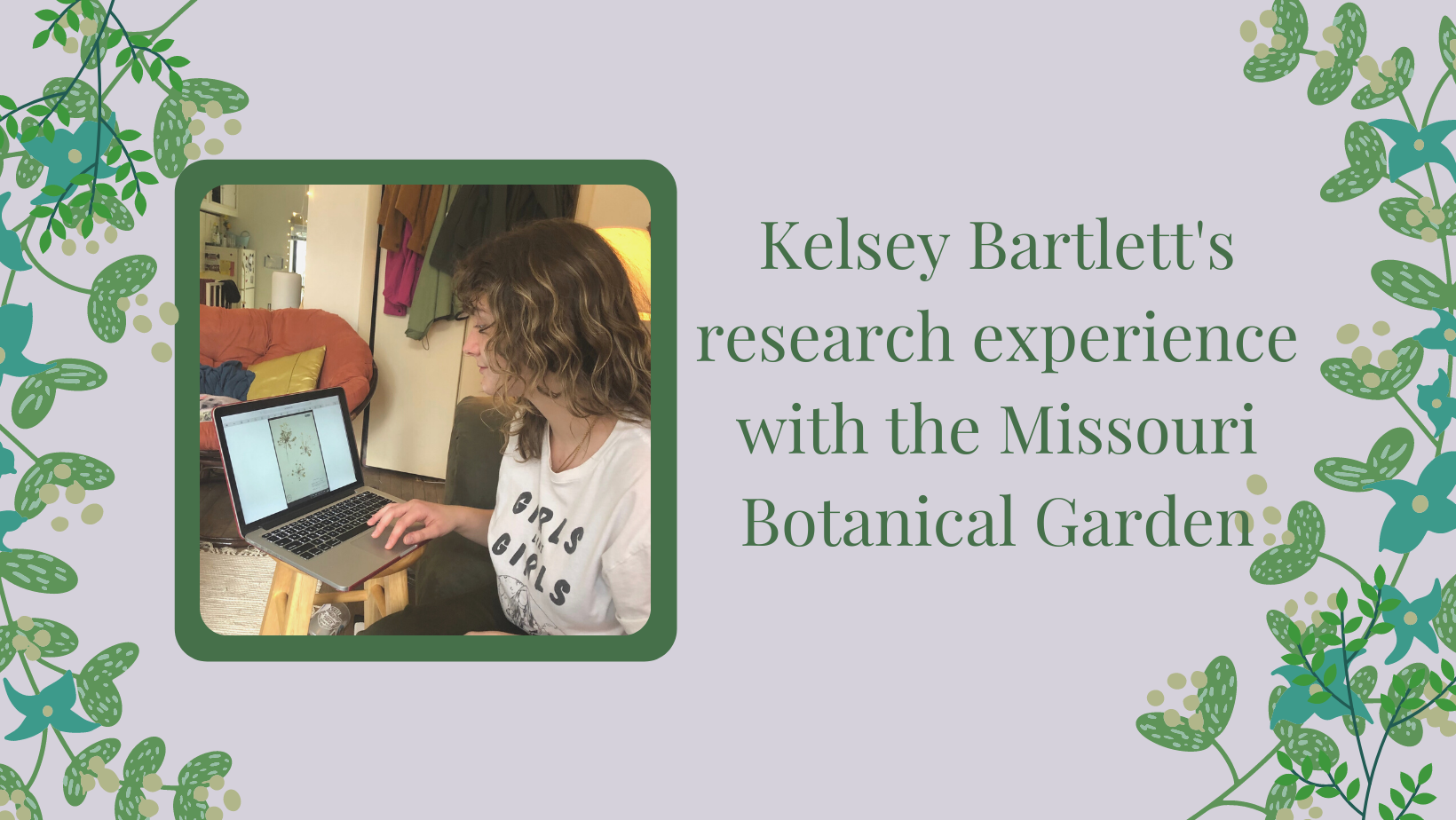In conducting my research project on the plant genus Leavenworthia this semester, I have gained incredibly valuable experience in the reality of botanical research. This spring, I collaborated remotely with Dr. Adam Smith, ecologist at the Missouri Botanical Garden, and Dr. Amy Zanne, professor of biology at GW, to investigate the causes and implications of earlier flowering in the plant genus Leavenworthia.
Leavenworthia is a group of small plants found only in cedar glades in the southeastern U.S, spanning from Texas to Indiana. Our initial data indicates that, since 1877, the average Leavenworthia flowering time has shifted earlier in the spring by almost a week. We hypothesized that earlier spring warming and rain due to climate change is at least partially responsible for this shift in flowering time. We were also curious how earlier flowering could affect the fitness of Leavenworthia, given that these plants are known to be poor competitors, and several species in the genus are already endangered. While our work on this project is far from over, we still made considerable progress over the course of the semester.
My work this semester focused on gathering climate data since 1877, including monthly average temperatures and precipitation totals, and then matching that climate data to each of our 1,200+ Leavenworthia records. Once each flowering Leavenworthia record is matched to the temperature and precipitation data from the month and year that plant was collected, we will then test the relationship between climate and flowering time. These results will indicate whether or not climate change over time helps explain the shift toward earlier flowering in Leavenworthia.
In gathering and collating the climate data, I spent a lot of time utilizing common research tools like R and Microsoft Excel. I got to use these tools in much more complex and involved ways than I was exposed to in my prior coursework. It was so exciting to learn how to use these tools more effectively to explore and analyze our data over these past few months. I know the skills I developed during this semester’s research will be extremely helpful as this project continues, and in my scientific career moving forward.
My collaborators taught me a lot about project organization and planning during our research this semester. I learned that every step of the research process must be documented, and this requires taking a lot of detailed notes and keeping one’s files very organized. I started keeping a shared, online lab notebook to keep track of our evolving questions and analysis. I helped develop a file organization system for our project that will work in the long term and be highly transferable to future projects.
I also learned so much about the research process this semester. My team and I experienced a wide variety of technical difficulties and setbacks: programs we planned on using to extract climate data didn’t run on Mac, and we had to adapt. Writing code took about double the time we expected each time. While I initially found these setbacks distressing, my collaborators assured me that problem-solving and troubleshooting are vital parts of the research process. We were able to solve and work through all of these issues, and still make progress on the project. I am very glad that I was able to learn how to calm down and troubleshoot during research now, so that I am better equipped to do so in the future.
Overall, I am so grateful for the opportunity to be mentored by such kind and intelligent scientists, and I am thankful for WLP’s Kimberly & Rob Humphries Award for making it possible. I learned so much this semester, gaining both hard skills and a broader knowledge on how to develop a research project from the very beginning. It was really empowering to demystify the research process through hands-on work, and it has made me more confident going forward as a woman in STEM. I am thrilled to continue my work on this project with the Missouri Botanical Garden this summer. Once our Leavenworthia investigation concludes, my team and I hope to produce an article detailing our results for publication.


